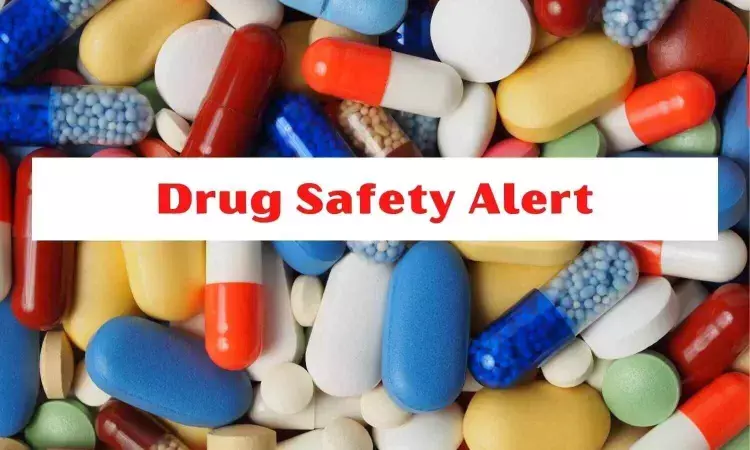- Home
- Medical news & Guidelines
- Anesthesiology
- Cardiology and CTVS
- Critical Care
- Dentistry
- Dermatology
- Diabetes and Endocrinology
- ENT
- Gastroenterology
- Medicine
- Nephrology
- Neurology
- Obstretics-Gynaecology
- Oncology
- Ophthalmology
- Orthopaedics
- Pediatrics-Neonatology
- Psychiatry
- Pulmonology
- Radiology
- Surgery
- Urology
- Laboratory Medicine
- Diet
- Nursing
- Paramedical
- Physiotherapy
- Health news
- Fact Check
- Bone Health Fact Check
- Brain Health Fact Check
- Cancer Related Fact Check
- Child Care Fact Check
- Dental and oral health fact check
- Diabetes and metabolic health fact check
- Diet and Nutrition Fact Check
- Eye and ENT Care Fact Check
- Fitness fact check
- Gut health fact check
- Heart health fact check
- Kidney health fact check
- Medical education fact check
- Men's health fact check
- Respiratory fact check
- Skin and hair care fact check
- Vaccine and Immunization fact check
- Women's health fact check
- AYUSH
- State News
- Andaman and Nicobar Islands
- Andhra Pradesh
- Arunachal Pradesh
- Assam
- Bihar
- Chandigarh
- Chattisgarh
- Dadra and Nagar Haveli
- Daman and Diu
- Delhi
- Goa
- Gujarat
- Haryana
- Himachal Pradesh
- Jammu & Kashmir
- Jharkhand
- Karnataka
- Kerala
- Ladakh
- Lakshadweep
- Madhya Pradesh
- Maharashtra
- Manipur
- Meghalaya
- Mizoram
- Nagaland
- Odisha
- Puducherry
- Punjab
- Rajasthan
- Sikkim
- Tamil Nadu
- Telangana
- Tripura
- Uttar Pradesh
- Uttrakhand
- West Bengal
- Medical Education
- Industry
Drug Safety Alert: IPC Flags Adverse Reactions to Amphotericin B and Carbimazole

New Delhi: The Indian Pharmacopoeia Commission (IPC), through its recently issued drug safety alert for the month of November, has revealed adverse drug reactions linked with antifungal drug Amphotericin B and aitithyroid agent carbimazole.
In accordance with the drug safety alert, amphotericin B, primarily indicated for treating progressive and potentially life-threatening fungal infections, can cause hyperkalaemia, a condition where there is too much potassium in the blood.
Furthermore, the alert added that carbimazole, which is indicated for the treatment of thyrotoxicosis, including the thyrotoxicosis crisis, is linked to agranulocytosis, a life-threatening condition that occurs when the body has a severely low number of white blood cells.
In connection with the above, the Indian Pharmacopoeia Commission (IPC) has cautioned healthcare professionals to diligently monitor the potential occurrence of adverse drug reactions (ADRs) when administering amphotericin B and carbimazole.
This came after a preliminary analysis of adverse drug reactions (ADRs) from the Pharmacovigilance Programme of India (PvPI) database.
Amphotericin B is fungistatic or fungicidal depending on the concentration obtained in body fluids and the susceptibility of the fungus. The drug acts by binding to sterols (ergosterol) in the cell membrane of susceptible fungi. This creates a transmembrane channel, and the resultant change in membrane permeability allows leakage of intracellular components. Ergosterol, the principal sterol in the fungal cytoplasmic membrane, is the target site of action of amphotericin B and the azoles. Amphotericin B, a polyene, binds irreversibly to ergosterol, resulting in disruption of membrane integrity and ultimately cell death.
The alert stated that Amphotericin B is indicated to treat visceral leishmaniasis, invasive fungal infections in patients who are intolerant or refractory to traditional Amphotericin B therapy, and patients with cancer who have febrile neutropenia.
Carbimazole is an antithyroid agent that decreases the uptake and concentration of inorganic iodine by the thyroid; it also reduces the formation of di-iodotyrosine and thyroxine. Once converted to its active form of methimazole, it prevents the thyroid peroxidase enzyme from coupling and iodinating the tyrosine residues on thyroglobulin, hence reducing the production of the thyroid hormones T3 and T4.
Now, as per the issued drug safety alert, the following suspected drug is associated with the ADRs, as given below:
S. No. | S. No. Suspected Drugs | Indication(s) | Adverse Drug Reactions |
1 | Amphotericin B | 1. Treatment of Febrile Neutropenia in cancer patients. 2. Treatment for invasive fungal infection in patients who are refractory to or intolerant of Amphotericin B therapy. 3. Indicated for the treatment of visceral leishmaniasis. | Hyperkalaemia |
2 | Carbimazole | Indicated for the treatment of thyrotoxicosis, including thyrotoxicosis crises. | Agranulocytosis |
In light of the above, the Indian Pharmacopoeia Commission, Ministry of Health and Family Welfare, has advised healthcare professionals, patients, and consumers to closely monitor the possibility of the above ADRs associated with the use of the above suspected drugs.
Further, the safety alert added, "If such reaction is encountered, please report to the NCC-PvPI, IPC, by filling of Suspected Adverse Drug Reactions Reporting Form/Medicines Side Effect Reporting Form for Consumer (http://www.ipc.gov.in), through Android Mobile App "ADR PvPI App" and PvPIHelpline No. 1800-180-3024 (toll-free)."
To view the notice, click the link below:
Mpharm (Pharmacology)
Susmita Roy, B pharm, M pharm Pharmacology, graduated from Gurunanak Institute of Pharmaceutical Science and Technology with a bachelor's degree in Pharmacy. She is currently working as an assistant professor at Haldia Institute of Pharmacy in West Bengal. She has been part of Medical Dialogues since March 2021.


